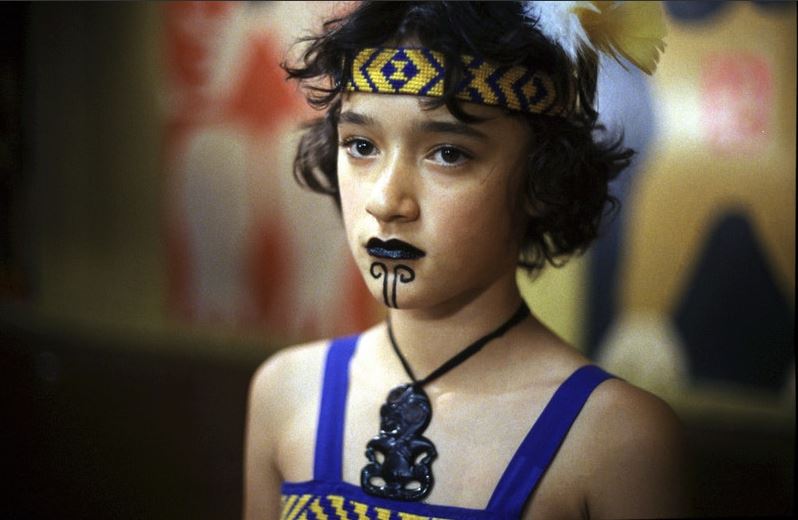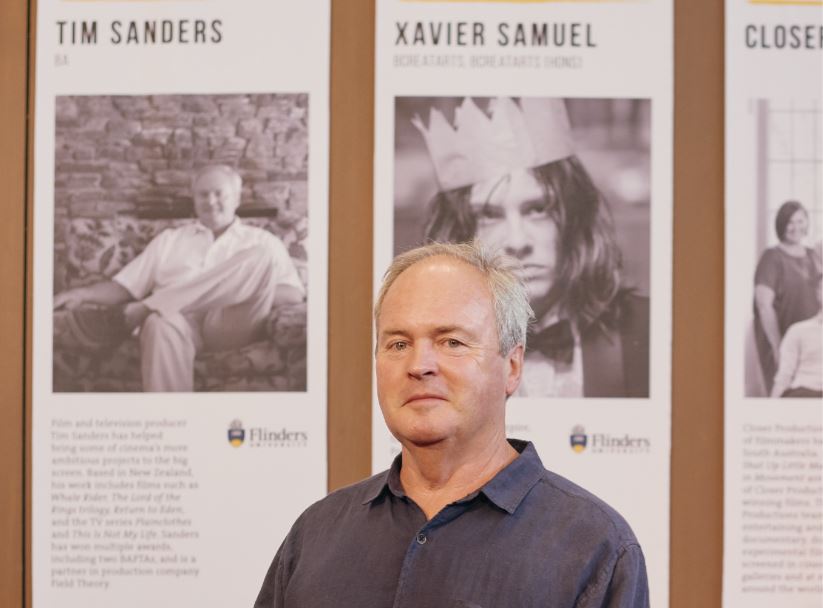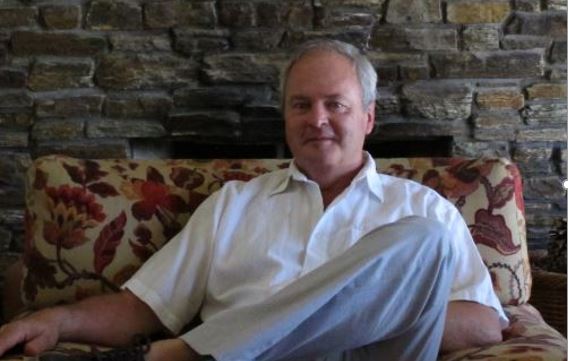
Veteran screen producer Tim Sanders arrives at Flinders University this week to share his experiences from 40 years in major filmmaking.
“Show business is bigger and more pervasive than ever. It’s also tougher than ever. Yet, interestingly, there are more opportunities than ever,” says New Zealand based Flinders alumnus Mr Sanders, who was born and raised in South Australia.
Tim Sanders’ career, which includes production roles on international award-winning films Whale Rider and The Lord of the Rings: Fellowship of the Ring, says his perspective can provide clarity about the current state and future of the screen industry.
During a three-week residency at Flinders, teach and workshop with Screen and Media students and will present a free public Q&A session called “Art for Art’s Sake… Money for God’s Sake” at the Alere Function Centre, at Flinders University’s Bedford Park campus, at 5.30pm on Tuesday 3 March.
Flinders Arts graduate Tim Sanders featured in 2016’s Flinders 50 Creatives. His screen production work through more than 30 feature films and major television projects has been recognised with two British Academy of Film and Television Arts (BAFTA) Awards, an Australian Film Institute (AFI) award, an MTV award and a Golden Globe nomination.
He has worked in the US, Canada, UK, Germany, Vietnam, Philippines, Nepal, Thailand, India, Israel, Fiji and Rarotonga – and in 2014, he launched film production company Field Theory.

Among the company’s first projects are The Guinea Pig Club, based on the revolutionary WWII work of plastic surgeon Archie McIndoe, and The Yarrabah Brass Band, the story of the re-formation of Australia’s first ever Aboriginal brass band.
“I’m keen to impart some of my experience, especially around the connection between art and commerce, particularly to students looking at a career in the screen industry.”
He says broad skill sets and commercial sensibilities are needed to meet the demands of the international film and TV industry.
Balancing fiscal and artistic aims in screen production is the type of wisdom that screen students need to plug into, especially as the screen industry continues to change at astonishing speed, he says.
He also has high hopes for the future of the screen industry to flourish in South Australia.
“I was raised in SA and saw the rise, decline and steady rise again of the South Australian Film Corporation. I’ve also seen the establishment of several local production houses, which I believe is the key to having a real industry.”
“Hosting interstate or foreign shows is great at a certain level, but is not necessarily sustainable and does not leave profit behind for future careers and projects.”
“I’ll be exploring both the creative and the business side of the screen industry, hopefully giving students some pointers on what it takes to be a creator in the real world of film and television.
“If a Flinders student hits the marketplace with some knowledge that the screen industry is about more than filmmakers, they will be ahead of the game. It’s commendable that Flinders has chosen a practitioner from the industry for this role.”

He believes the pivotal role of a producer in contemporary screen production isn’t recognised by many emerging screen students – yet it is a role that offers great possibility.
“The role of the producer is not widely understood.
“As a producer, you are the leader on a production and take ultimate responsibility for creative, financial and legal matters.
“While a director plays a hugely important role in aspects of the production, it is generally the producer who finds the project, develops it so that it can be made, arranges funding, supervises all facets of making the film, oversees post production, marketing and distribution of the film, and reports back to key participants for many years thereafter.
“During the Golden Years of Hollywood, between the 1910s and 1960s, a producer was considered the top dog and was often a solo operator because the studio took charge of developing, financing, casting and distribution.” A solo producer’s task was mainly to supervise day-to-day making of the film.
“In Australia and NZ we have to cover all the bases ourselves and the resulting job is often too big for one person, so we now see the emergence of Co-Executive Producers and Showrunners. There’s now a lot more people filling these roles in the industry.”
During his residency at Flinders, Tim will share ideas with other teaching disciplines to explore potential collaborations.
“Creative arts crosses numerous borders and there is plenty to explore across disciplines including engineering, marketing, innovation, digital and even banking and business. They all have places in the global screen industry.”

